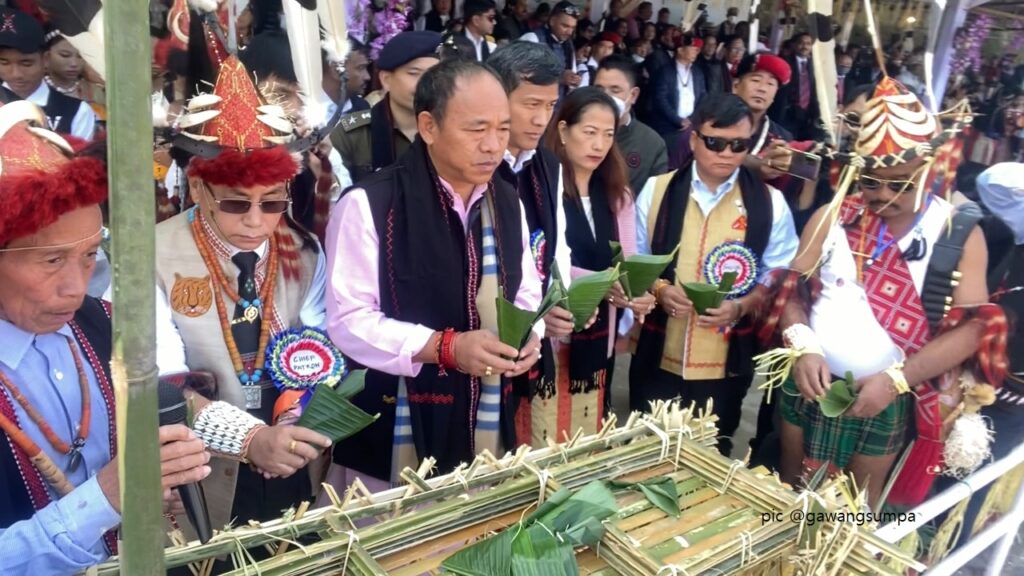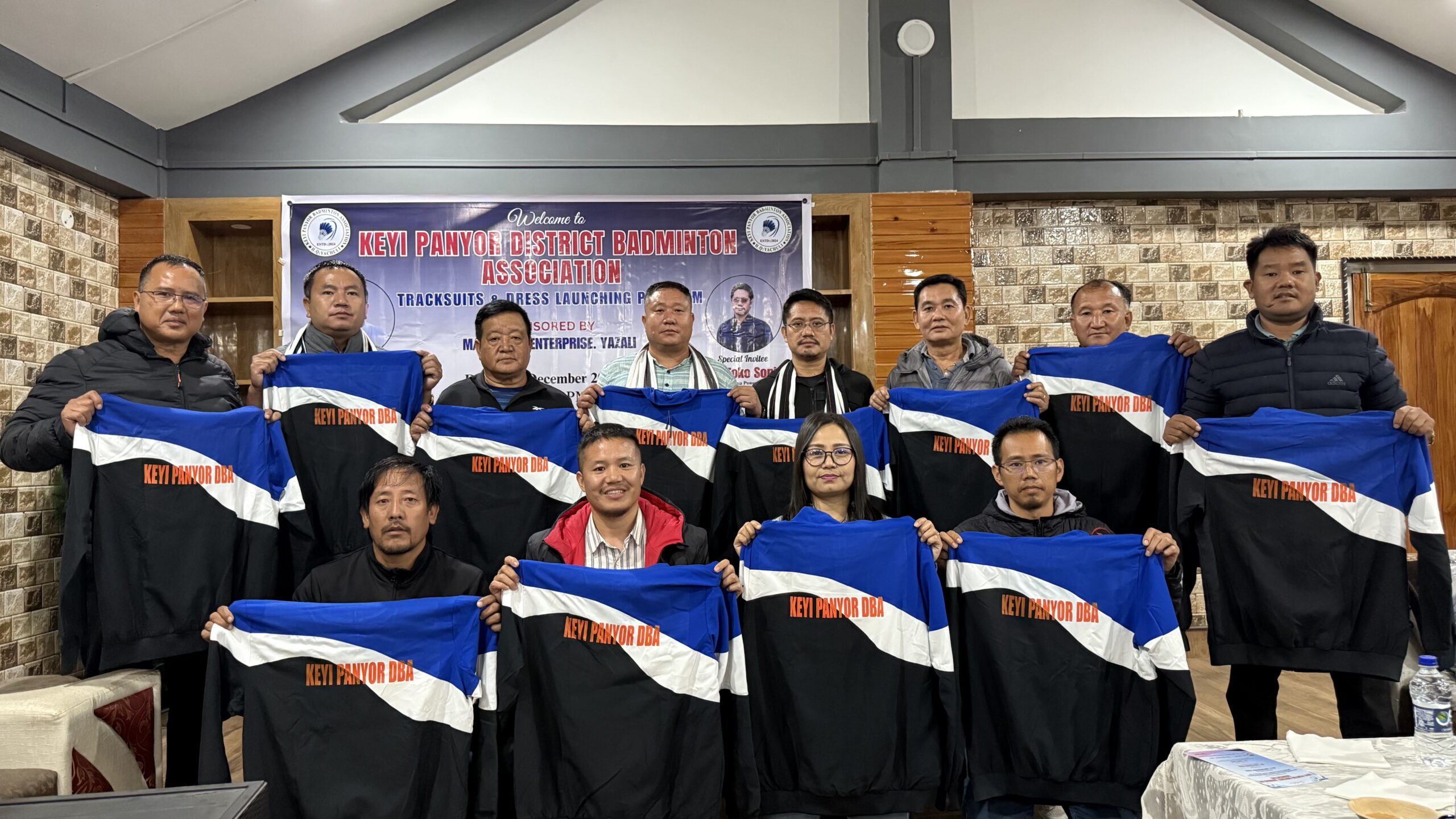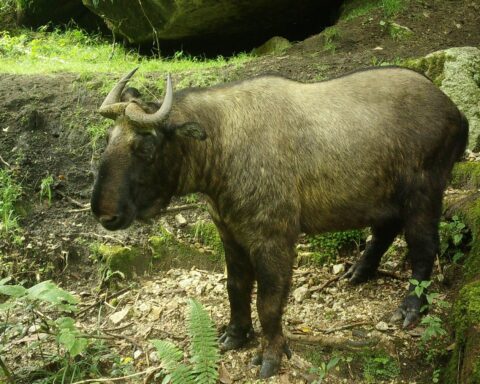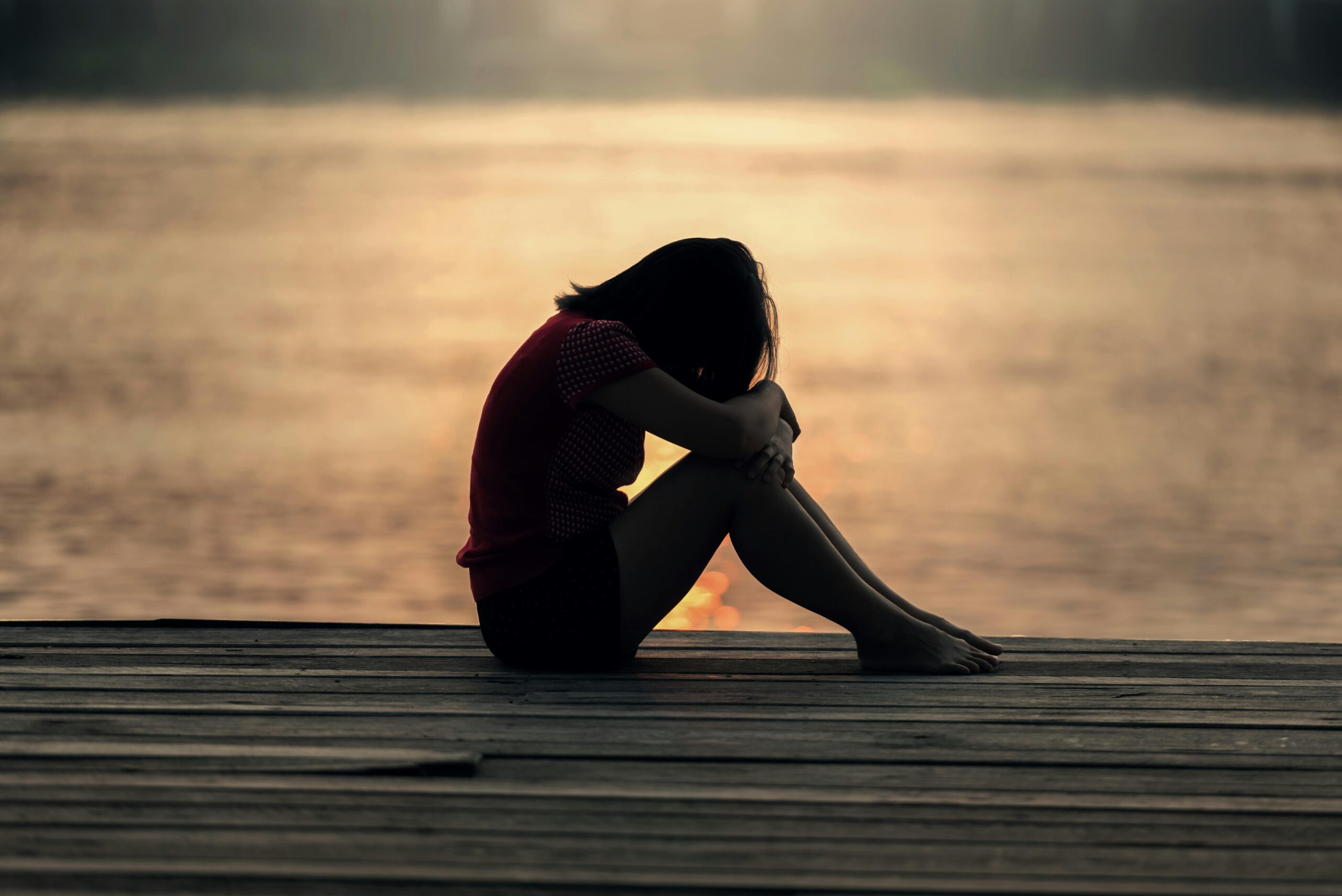Itanagar: Chalo Loku, one of the most important agricultural festivals of the Nocte tribe of Arunachal Pradesh was celebrated with great enthusiasm and gaiety across the state on Thursday.
Addressing the celebrations at Khonsa, the headquarters of Tirap district, forest and environment minister Mama Natung urged upon the people to preserve, protect and promote their respective cultures and traditions.
“Arunachal is a land of festivals and we must showcase our rich cultural heritage to the outside world to promote cultural tourism. Efforts must also be made to keep our identity intact for posterity,” he said.
The minister also appreciated the people of Tirap for surrendering their airguns under the ‘Air Gun Surrender Abhiyan’ as a bid to protect wildlife.

The ‘Air Gun Surrender Abhiyan’ is an initiative of the state government to dissuade hunting and create awareness on the ill-effects of killing wildlife. Air guns are commonly used by people to hunt birds.
Speaking as the guest of honour, Pangin-Boleng MLA Ojing Tasing in his address said that religion and culture are two different facets and should not be mixed.
He urged the young generation to actively participate in traditional festivals, learn from their elders and take up the responsibility of preserving the rich cultural heritage of the state.
Chief patron of the festival and Borduria-Bogapani legislator Wanglin Lowangdong said “Chalo Loku is one of the biggest agriculture festivals of the Nocte community which is celebrated for recreation and merrymaking after the harvesting (paddy) season.
This is the time to forget and set aside differences and sit together for feasting, he said. Lowangdong also lauded Natung for launching the Air Gun Surrender Abhiyan in the state and appealed to all to come forward to surrender their airguns.

Earlier in his welcome speech, Lankham Wangsu, president of 53rd Nocte Chalo Loku Celebration Committee highlighted the significance of the festival.
Traditional dance troupes from Thinsa, Noksa and Kheti villages participated in the festival.





